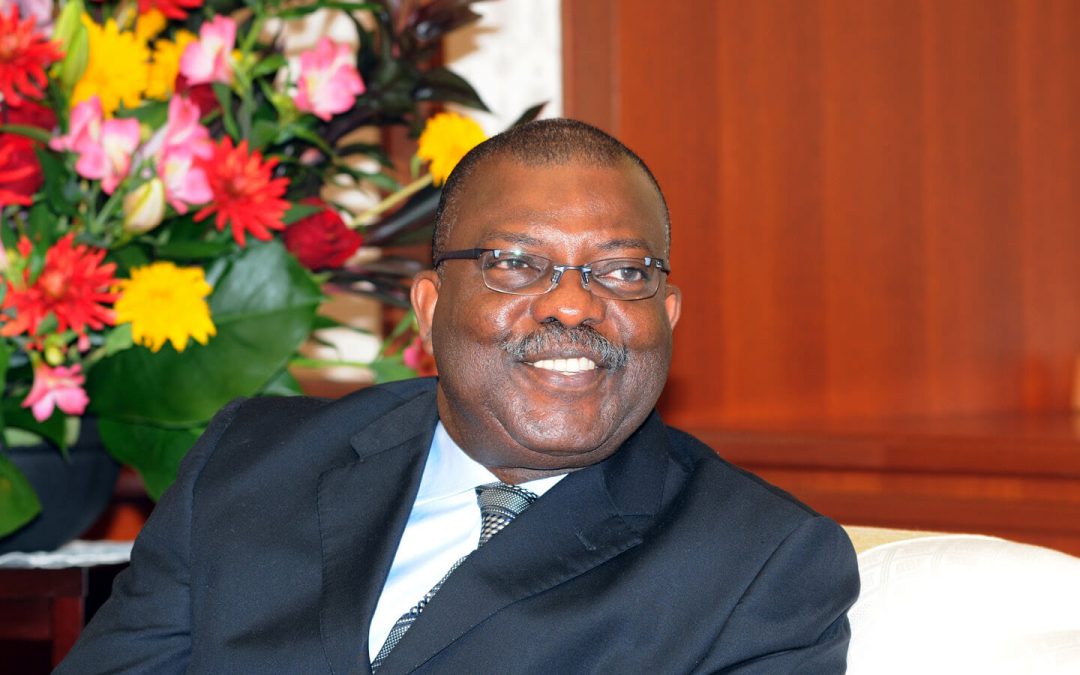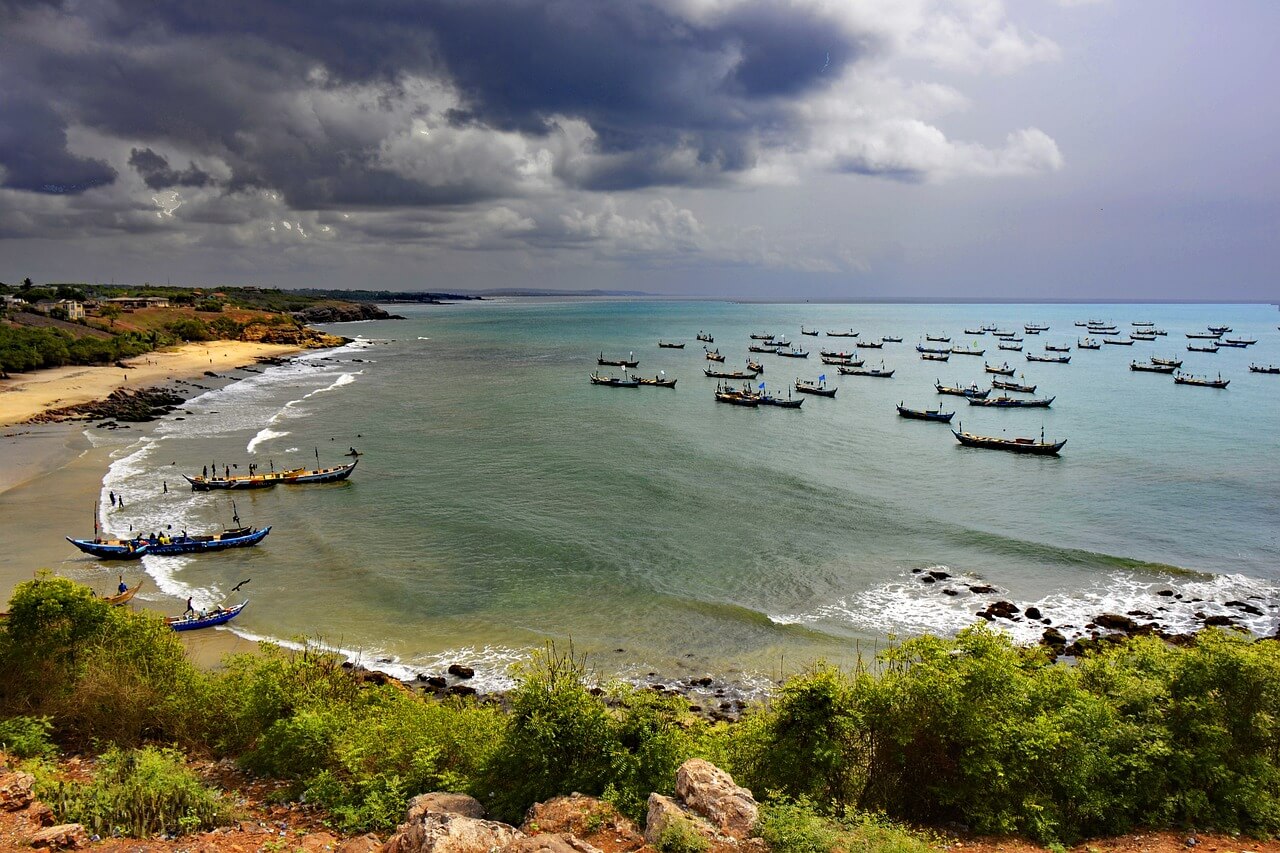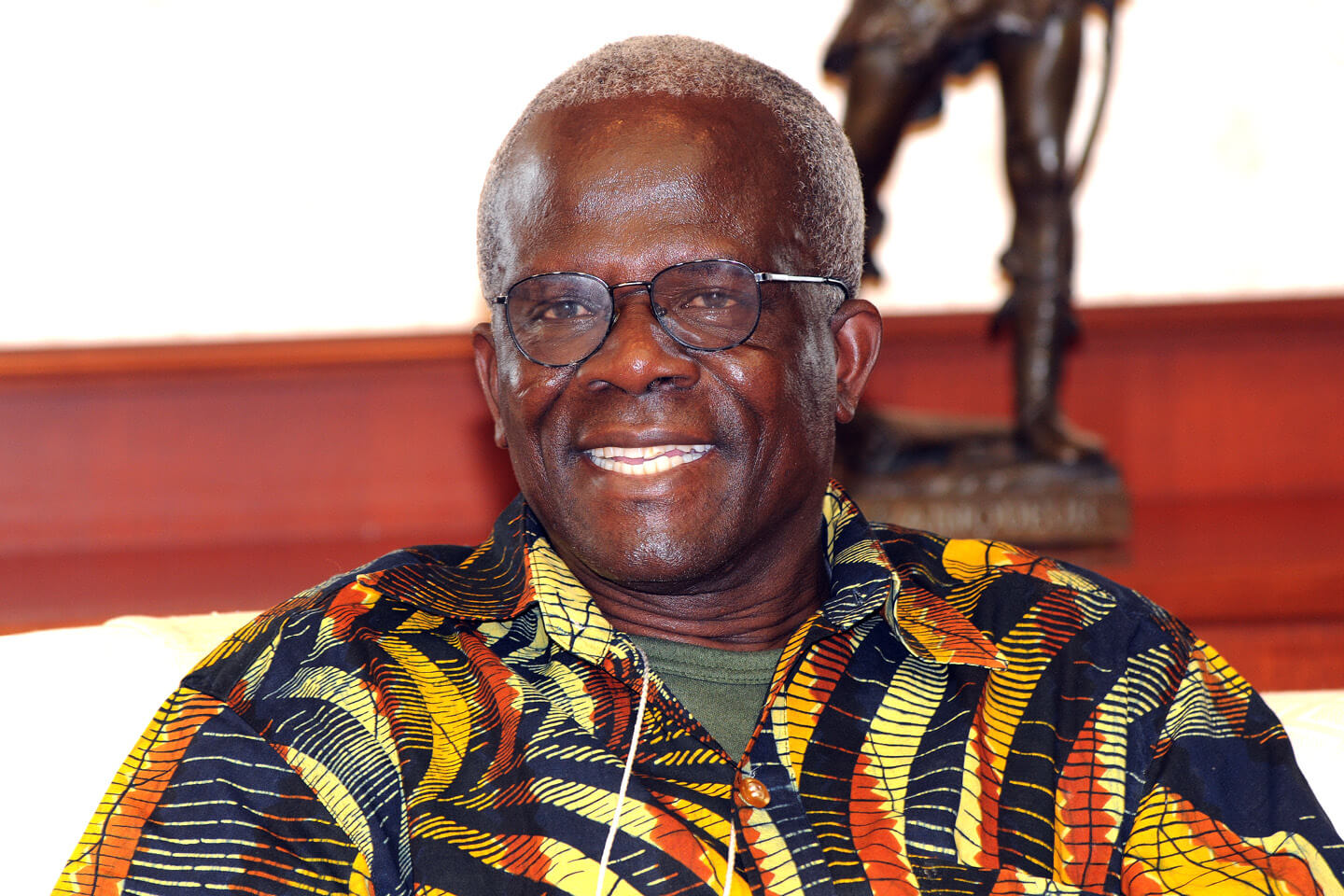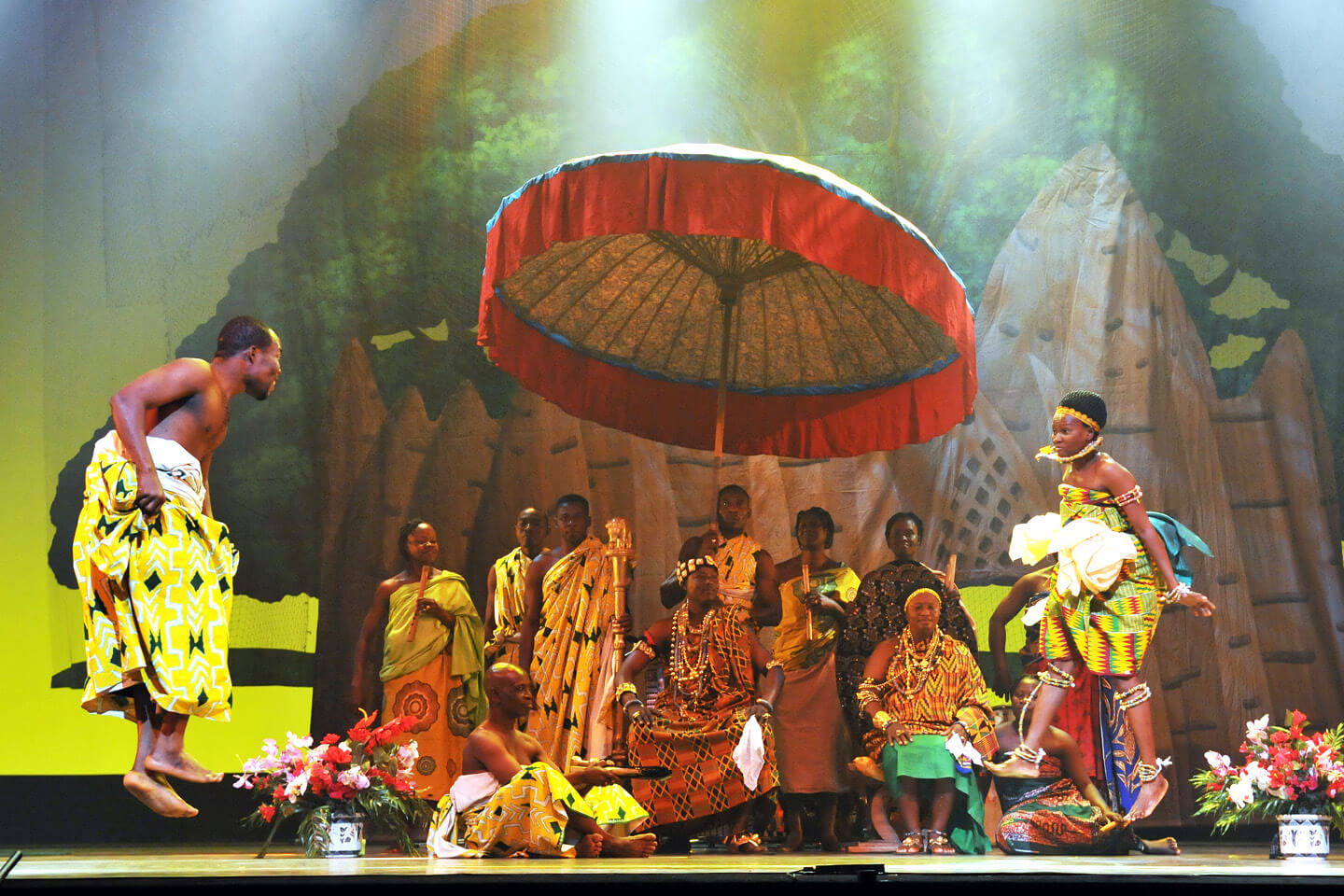A Nation United in Music and Dance
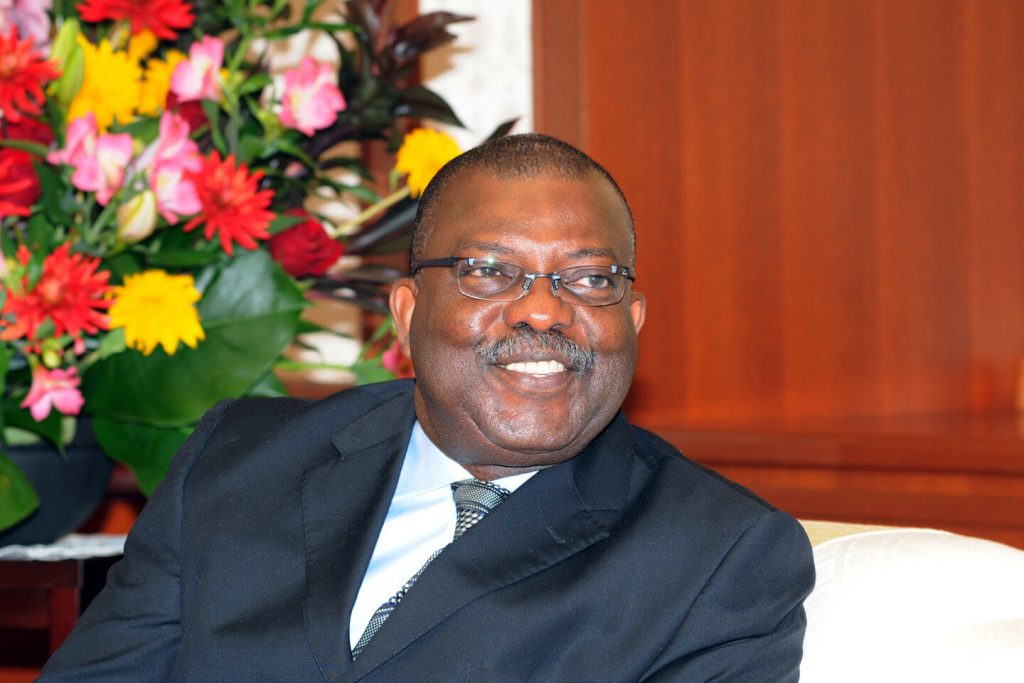
“In Ghana, the concept of the formation of cultural institutions and groups like the Ghana Dance Ensemble goes back to the time of our founding fathers.”
Min-On: Congratulations on a successful Japan tour of the esteemed Ghana Dance Ensemble! Please share with us your impressions of today’s performance.
Ambassador Brandful: It was a wonderfully enjoyable performance, and I was especially impressed that everything was of such high quality. I have long thought that we, as an African nation, could contribute something to Japan, so I am very happy with what we have accomplished today through this onstage collaboration before a capacity audience. I am proud that we have been able to give something to the Japanese people, especially at this difficult time for Japan. I also appreciate the fact that so many of my African colleagues, ambassadors and diplomats from so many countries attended. I extended invitations to various people, and almost everyone came. It was indeed a good sign of collaboration and solidarity among the African nations, and of friendship with many other countries.
At the same time, I am very proud that we were able to bring the Ghana Dance Ensemble all the way to Japan, both as a representative of African countries, and in commemoration of the 55th anniversary of Ghana’s independence. These wonderful performances make us proud of our culture, and proud to be African.
Min-On: Since the early 1960s, Dr. Ikeda, the founder of Min-On, has said that the 21st century will be the century of Africa. Taking up that vision as a theme, Min-On initiated a concert series entitled A Musical Voyage Across Africa. Today’s performance saw that vision blossom onstage.
Ambassador: I would like to sincerely thank the Min-On Concert Association. I was able to go back to the Min-On founder’s vision and learn about his profound thoughts on cultural exchange. I deeply admire what has been achieved by Min-On to realize collaborations with many different countries—both in Africa and around the world. In Ghana, the concept of the formation of cultural institutions and groups like the Ghana Dance Ensemble goes back to the time of our founding fathers. The first president of the Republic of Ghana, Dr. Kwame Nkrumah, had a vision of bringing the whole continent together—not just Ghana, but eventually all of Africa—by promoting such cultural activities. That is why those institutions were established specifically in the areas of the performing arts, music and cultural activities, sports, and so on. These areas where highlighted for the development of Ghana and Africa, and I am very happy that a cultural institution like the Ghana Dance Ensemble has survived through many difficult challenges over the years, and has continued presenting a positive image of Ghana and Africa through its wonderful cultural performances.
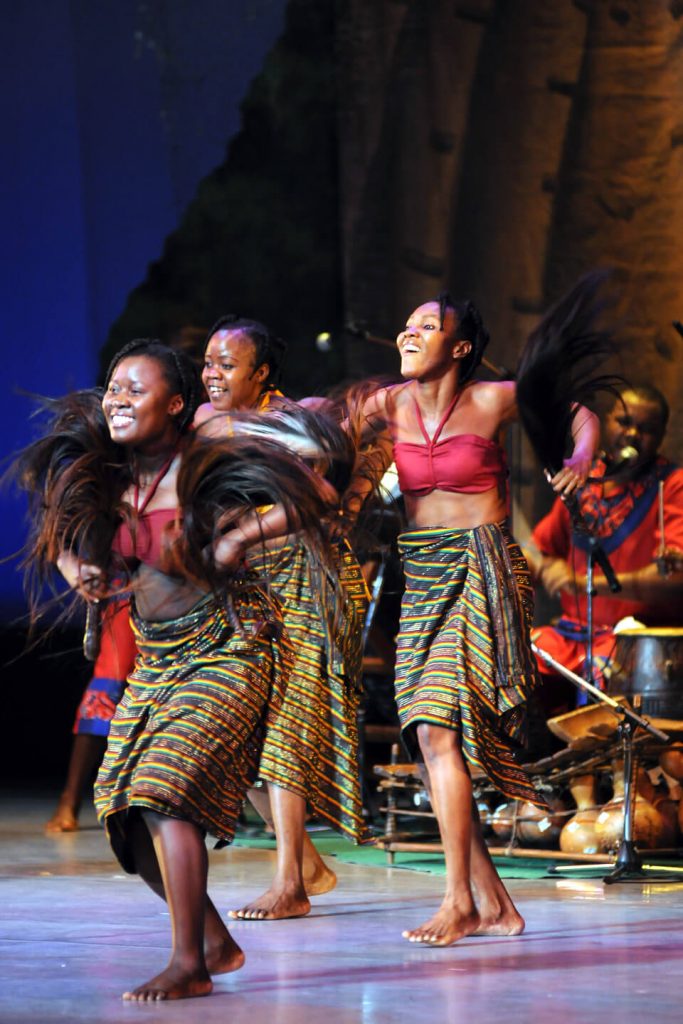
Min-On: Today’s performance gave us a vivid insight into African music and performing arts. Music and rhythm, singing and dancing seem to be important aspects of daily life in Africa.
Ambassador: I believe music is important for all people, not just in Africa but also all over the world. I love music, too: when I was at school, I taught myself to play the tenor saxophone and the piano, and still now, whenever possible, I try to make time for music in one way or another.
Particularly in Africa, musical culture is an important part of people’s day-to-day lives. Ghana has many different styles of traditional and modern music because of its multiplicity of ethnic groups and the cosmopolitan makeup of the nation. The Ghana Dance Ensemble was originally established at the Institute of African Studies in the University of Ghana in 1962. Based therefore on extensive research into and study of the heritage of music and dance in Ghana and Africa, the company has developed and its members trained in the rich variety of Ghana’s dance cultures, epitomizing the exhilarating creativity of African culture.
I deeply appreciate how each member of the Ghana Dance Ensemble has made the long trip from Ghana to Tokyo to deliver uplifting, entertaining and enjoyable performances that represent African musical culture, and I am proud that as cultural ambassadors of Ghana they have enriched the cultural ties between Ghana and Japan.
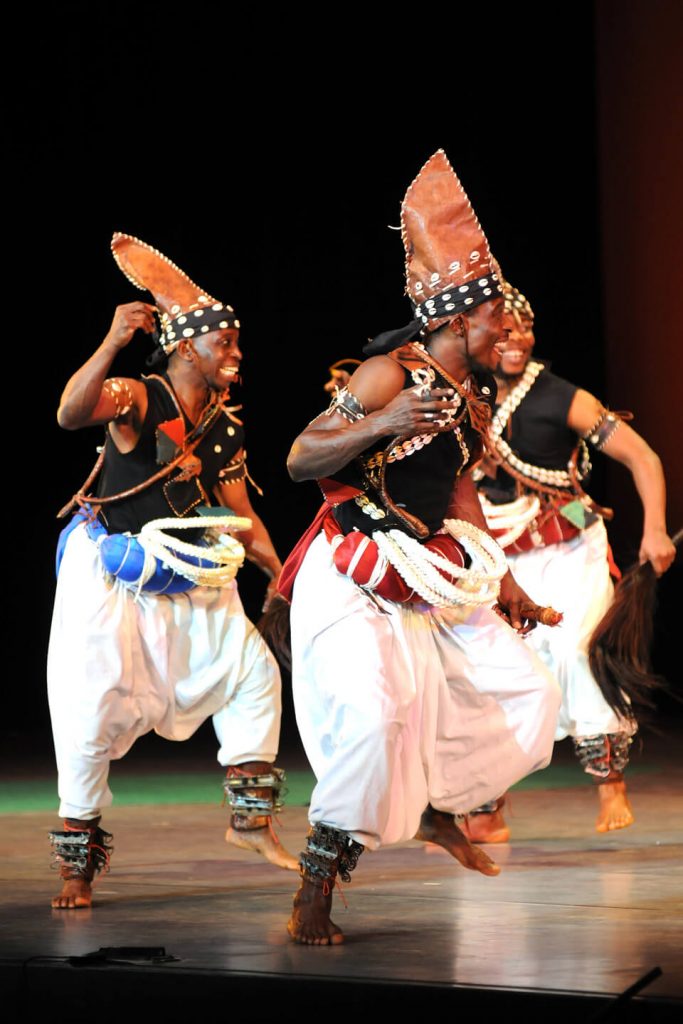
Min-On: What do you think is the significance of the kind of international cultural exchange promoted by the Min-On Concert Association for the last half century?
Ambassador: I can confidently say that cultural exchanges are very significant for any country. The Min-On Concert Association has proven this significance by consistently being involved over a long period in concert activities that include various fields of the performing arts, and at the same time the Association has organized countless cultural exchanges with many different countries. Min-On even sponsors whole tours from beginning to end, such as this one for the Ghana Dance Ensemble. It is for us—especially as we have come all the way from Africa—very significant to be able to introduce African culture to Japanese people, and obviously it is beneficial for our country to increase understanding of Ghana in Japan. I have monitored the progress of this tour so as to look after the members of the Dance Ensemble during their visit to Japan, and have found that everybody in the troupe is very happy and appreciative of the kind way that Min-On has taken care of everyone, and also how Min-On has professionally organized the tour logistics. All that consideration, and the care given to minute details, made possible the realization of such a successful performance tour by the Ghana Dance Ensemble in Japan. Once again, I reiterate my deepest appreciation of Min-On and, at the same time, I hope it will be possible to have other collaborations between Min-On and the Ghana Dance Ensemble in the future. Both Ghana as a country and the Dance Ensemble as an institution know that we still have many things to learn from Japan; therefore, we hope this bridge of friendship built by Min-On and the Dance Ensemble will bring ever-closer cooperation between Japan and Ghana for the future of Africa.


